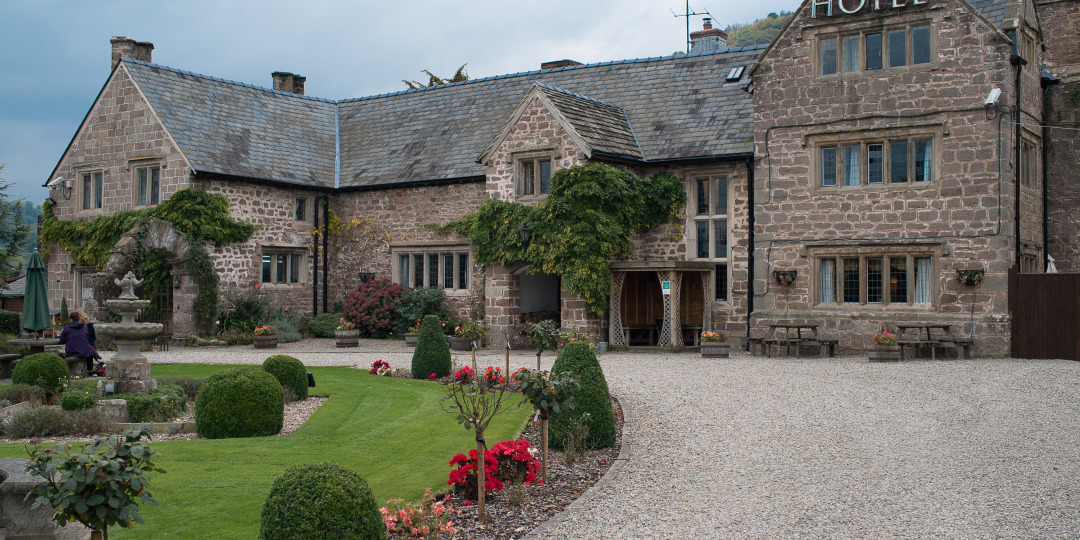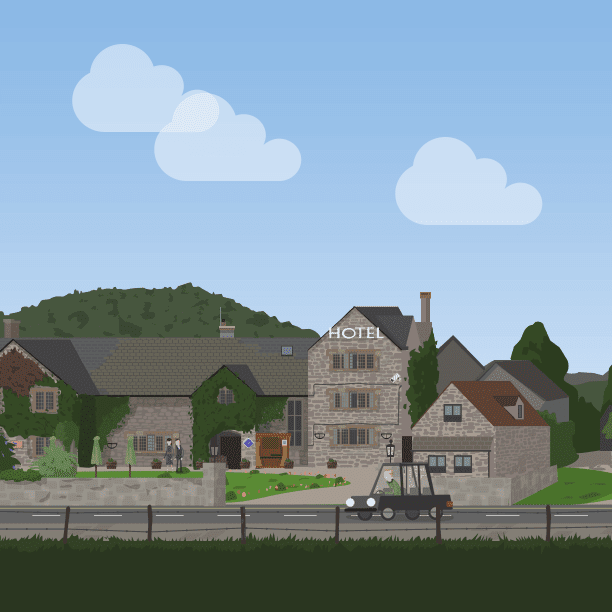What does the company do?
Monnow Valley Biomass provides sustainable heating and electricity solutions to small businesses, providing more efficient heating using biomass systems to reduce their heating costs while switching to a renewable fuel source.
The company installs and maintains the biomass system for the businesses and in return receives revenues from the sale of heat to the businesses and payments through the Renewable Heat Incentive (RHI) scheme for those boilers that are accredited.
The company owns and operates systems at the following locations:
The Old Court Hotel – the hotel’s oil-fired boilers were replaced by a more efficient biomass system which is accredited for the RHI.
Darren Mill – combining a home and 3 holiday lets, Darren Mill involved installing 2 boilers in a separate plant room with 4 plate exchangers in each detached property. The boilers provide hot water and space heating throughout, generating savings on the old oil-fired and electricity fired heating systems. The biomass system installed is accredited for the RHI.
The Bell Hotel – situated on the Welsh-English border, The Bell Hotel replaced and upgraded its heating system at the same time as it expanded its facilities to include a new kitchen and staff quarters plus a function area. The biomass system installed is accredited for the RHI.
Treworgan Farm – located in rural Monmouthshire, the farm has 850 acres of arable land on which maize and oats are grown to feed its 1,100 goats plus wheat, grass and beans for the premium seed markets. A 999 kWth Froling Lambdamat wood chip boiler was installed to modernise its use of energy and make the farm more sustainable. After a lengthy delay, this biomass system is accredited for the RHI.
Certainly Wood – Certainly Wood, established in 2005, is a large kiln dryer of logs and has a range of wood products that it sells for the open fire and log burners market. At the business’s premises, there are static caravans on site which house farmworkers all year round. An Organic Rankine Cycle CHP (combined heat and power) system was installed that generates 70 kW of electrical capacity for Certainly Wood and produces 605 kW of lower temperature heat which has been directed to a new warm room to dry a wood-based firelighter product similar to kindling. After a lengthy process, Ofgem rejected this biomass system’s RHI application.
Why did the company raise money?
This was Monnow Valley Biomass’ first investment on Abundance in 2015. The money raised funded the installation of 6 biomass boilers at three businesses including two hotels (The Old Court Hotel and the Bell Hotel) and a residential and holiday let property (Darren Mill).
How does the company expect to repay the investment?
Monnow Valley Biomass’ intention was to repay investors from the operational revenues it expected to earn over the life of the investment from the sale of heat and payments through the Renewable Heat Incentive. With the significant loss of revenue from its biomass portfolio (see Updates), the company is now in the process of selling the assets of the business to return some capital to investors.
How is the company making an impact?
The renewable heat generated is sold to the businesses where the boilers are situated, which reduces the environmental cost of their heating requirements while saving them money on their energy bills.
The biomass boilers are very similar in operation to those burning fossil fuels but with the advantage of using biomass that is considered a renewable and carbon neutral fuel source. As per the requirements of the RHI scheme only biomass that meets certain sourcing and sustainability criteria can be used.

Key terms
The interest and capital is paid in equal instalments every 6 months the life of the investment.
The company can only make an early repayment of the investment in certain circumstances, such as a change of control of the company (for example, if some or all of the company was sold to a new owner) or a regulatory/tax requirement.
See the Debenture Deed for details of all circumstances in which the option for early repayment may be exercised.Documents
Payment schedule
This table gives a breakdown of what is due to be paid back on this investment, based on an example investment of £1,000.
| Payment date | Capital repayment | Interest | Total |
|---|---|---|---|
| 8 September 2016 | £26.32 | £25.74 | £52.06 |
| 11 March 2017 | £26.32 | £25.74 | £52.06 |
| 8 September 2017 | £26.32 | £25.74 | £52.06 |
| 9 March 2018 | £26.32 | £25.74 | £52.06 |
| 7 September 2018 | £26.32 | £25.74 | £52.06 |
| 11 March 2019 | £26.32 | £25.74 | £52.06 |
| 6 September 2019 | £26.32 | £25.74 | £52.06 |
| 10 March 2020 | £26.32 | £25.74 | £52.06 |
| 8 September 2020 | £26.32 | £25.74 | £52.06 |
| 11 March 2021 | £26.32 | £25.74 | £52.06 |
| 8 September 2021 | £26.32 | £25.74 | £52.06 |
| 11 March 2022 | £26.32 | £25.74 | £52.06 |
| 8 September 2022 | £26.32 | £25.74 | £52.06 |
| 10 March 2023 | £26.32 | £25.74 | £52.06 |
| 8 September 2023 | £26.32 | £25.74 | £52.06 |
| 10 March 2024 | £26.32 | £25.74 | £52.06 |
| 8 September 2024 | £26.32 | £25.74 | £52.06 |
| 11 March 2025 | £26.32 | £25.74 | £52.06 |
| 8 September 2025 | £26.32 | £25.74 | £52.06 |
| 11 March 2026 | £26.32 | £25.74 | £52.06 |
| 8 September 2026 | £26.32 | £25.74 | £52.06 |
| 11 March 2027 | £26.32 | £25.74 | £52.06 |
| 8 September 2027 | £26.32 | £25.74 | £52.06 |
| 10 March 2028 | £26.32 | £25.74 | £52.06 |
| 8 September 2028 | £26.32 | £25.74 | £52.06 |
| 11 March 2029 | £26.32 | £25.74 | £52.06 |
| 8 September 2029 | £26.32 | £25.74 | £52.06 |
| 11 March 2030 | £26.32 | £25.74 | £52.06 |
| 8 September 2030 | £26.32 | £25.74 | £52.06 |
| 11 March 2031 | £26.32 | £25.74 | £52.06 |
| 8 September 2031 | £26.32 | £25.74 | £52.06 |
| 10 March 2032 | £26.32 | £25.74 | £52.06 |
| 8 September 2032 | £26.32 | £25.74 | £52.06 |
| 11 March 2033 | £26.32 | £25.74 | £52.06 |
| 8 September 2033 | £26.32 | £25.74 | £52.06 |
| 11 March 2034 | £26.32 | £25.74 | £52.06 |
| 8 September 2034 | £26.32 | £25.74 | £52.06 |
| 11 March 2035 | £26.16 | £25.74 | £51.90 |
| Total | £1,000.00 | £978.12 | £1,978.12 |
